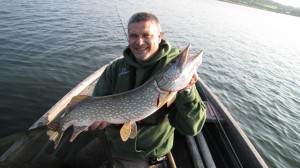Take 12 Strokes off Your Golf Game by Overcoming Cathexis with Kenosis - What?
Every summer for the past five or six years I have reread Scott Peck's quirky book about psychiatry and golf, Golf and the Spirit. Peck is probably better known for his best selling books about his experiences and insights as a psychiatrist, such as, A Road Less Travelled. In Golf and the Spirit, Peck combines his love for golf and what golf has taught him about the human condition and relates that to his years as a psychiatrist, and what studying the human condition that has taught him about golf.
If that sounds a bit convoluted, well, paradox is one of the recurring themes in the book. Peck says in the introduction that reading the book might take 12 strokes of your game, and it might not. His advice on the physical and technical sides of the game is simple, keep your eye on the ball and take a nice easy swing, and, watch a good player and imitate the swing. The book is more about the mental part of the game, and the behaviour that is required to succeed at golf and in life.
Peck, who has spent decades as a golfer, and now, unable to play, creates his imaginary dream golf course on a tropical island. In each chapter he plays a hole on the course, reflecting on memories of past experiences, both as a golfer and a psychiatrist. Along the course, he ponders issues like, why it is so difficult for people to change, even though they want to, whether it is correcting your golf swing to get rid of a slice or someone trying to overcome an addiction and everything in between.
A couple of the recurring themes are difficult concepts that define difficult words. Peck returns again and again to the concept of kenosis, the idea that to change you must empty yourself of self. Self gets in the way. Every golfer knows that the mental game plays a big part in a golfer's success. Golf involves the often difficult paradox of relaxing and concentrating at the same time. Golf cannot be played well if ones mind is distracted with all kinds of thoughts, whatever they may be about. Somehow, it is best to be thought-less. The mind must be emptied, which is the beginning of kenosis.
Another concept Peck returns to often is called cathexis. This word describes the human condition of developing an emotional investment in destructive behaviour. It is applicable to golf as it is many things in life. We can't change because we can't give up the emotional investment we have in our behaviour, how that behaviour defines us.
I am often surprised, yet I guess not really because I have done it too, at how often I see golfers at the driving range make the same bad swing time and time again, somehow expecting a different result. If you want to change the result you have to change the swing, the stance, the grip, something. I found that my game started to improve when I started experimenting. What will happen if I stand with my feet closer together? What happens when I draw back a bit farther on my backswing? Eventually, you find out what works and what doesn't work. In the process, you give up the emotional investment in one way of doing things. It is a form of kenosis.
I can't say for sure if Peck is responsible for taking twelve strokes off my game, but my game has definitely improved since reading and rereading his book. I think there is a correlation. Learning to overcome cathexis with kenosis is probably not being taught at many golf academies. But read the book, relax and enjoy it, and your game will probably improve.
Do You Always Have To Buy From The Ladies Golf Section?
Golfers - Why You Need To Clean Your Balls


